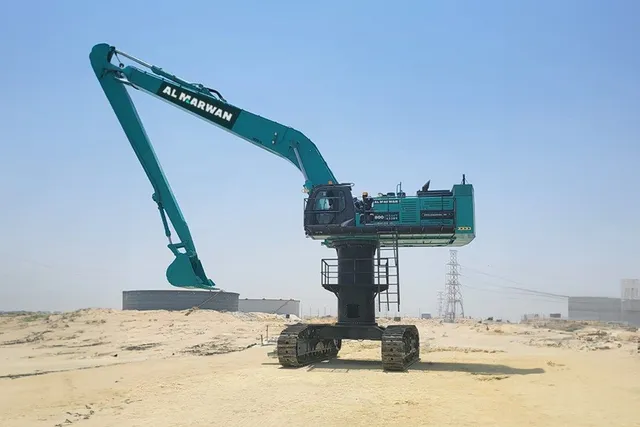Maximize Project Efficiency and Flexibility with Large Excavator Rental Options for Heavy-Duty Construction Needs
Excavators are essential machines in construction, mining, landscaping, and many other industries. But given the high cost of buying one, leasing an excavator is often a more financially viable and practical solution, especially for businesses with varied or short-term projects. Here’s a look at why leasing an excavator can be a smart, strategic choice for businesses of all sizes.
1. Cost Savings and Budget Flexibility
Leasing an excavator allows companies to access high-quality equipment without the hefty upfront cost of purchasing. Buying an excavator can be a major capital expenditure, and leasing frees up funds that can be invested in other business areas, like hiring skilled labor, upgrading technology, or expanding operations. With fixed monthly payments, leasing also makes budgeting easier, providing predictable expenses that reduce financial strain.
Moreover, maintenance and repair costs are often covered by the leasing company, which means fewer unexpected expenses. Leasing allows businesses to access high-end models they might not afford otherwise, maximizing the productivity and efficiency of projects without straining the budget.
2. Access to the Latest Technology and Models
Construction and heavy equipment technology are constantly evolving, with new models offering improved fuel efficiency, better controls, and enhanced safety features. Leasing provides access to the latest technology and advancements without the commitment of ownership. Many leasing agreements allow companies to upgrade to newer models after a certain period, ensuring that they always have access to cutting-edge equipment.
Up-to-date technology means increased productivity, lower fuel costs, and enhanced operational safety. Leasing also ensures compliance with the latest environmental regulations, as newer models tend to have better emission standards, meeting the requirements of environmentally conscious clients and projects.
3. Flexibility to Meet Project-Specific Needs
The flexibility that leasing provides is especially beneficial for businesses with varied project requirements. Different projects may require different types or sizes of excavators, and leasing allows companies to choose the most suitable model for each specific job. For instance, a small-scale landscaping project might need a compact excavator, while a large construction site requires a heavy-duty machine.
With leasing, companies can scale their fleet up or down depending on workload, seasonal demand, or project scope, rather than being tied to a single piece of equipment. This flexibility is invaluable for companies in sectors with fluctuating needs or for those working on diverse projects.
4. Reduced Depreciation Risks
Excavators, like most heavy machinery, depreciate over time. The resale value of an excavator can drop significantly due to wear and tear, market fluctuations, and the introduction of newer models. When a business leases an excavator, it avoids the financial impact of depreciation, which is especially beneficial for companies that need equipment only on a temporary or project-by-project basis.
At the end of the lease, businesses simply return the excavator without worrying about reselling or retaining an outdated asset. This arrangement reduces long-term financial risk and allows companies to stay focused on their core operations.
5. Potential Tax Benefits
In many regions, lease payments can be classified as operating expenses, which may provide tax deductions. This can be advantageous for businesses aiming to minimize taxable income. While tax laws vary, the potential tax benefits of leasing can further reduce the overall cost, making it an appealing option for many companies. Consulting with a financial advisor can help determine specific tax benefits available for equipment leases in a particular area.
6. Maintenance and Support Included
Leasing agreements often include maintenance and technical support from the leasing provider. This means that any repairs or maintenance are handled by the leasing company, reducing downtime and ensuring the excavator remains in top condition. Maintenance coverage is especially beneficial for small and mid-sized companies that may not have dedicated in-house maintenance teams.
Having a reliable support system provided by the leasing company also ensures compliance with safety regulations and helps avoid unexpected repair costs. Companies benefit from smooth project execution and uninterrupted operations, knowing they have dependable support for their leased equipment.
Leasing an excavator is a smart choice for businesses looking to save costs, gain access to the latest models, and maintain financial flexibility. By avoiding upfront expenses, managing cash flow effectively, and enjoying the flexibility to adapt to project needs, leasing offers a practical solution for any business that requires reliable excavation equipment. With the added advantages of maintenance support and potential tax benefits, leasing an excavator can be a strategic decision that supports growth, productivity, and financial stability.




No comments:
Post a Comment